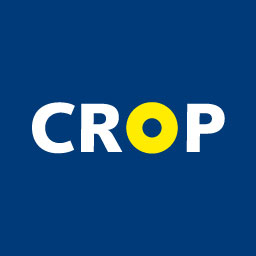Political agreement on VAT in the digital age (VIDA)
After two years of negotiations, the moment has come: all EU member states agreed on the VIDA proposals at the European Council on 5 November 2024. These are proposals to modernise the VAT rules and adapt them to the digital age. The proposals have changed quite a bit in the meantime, which requires the European Parliament to be consulted again. Afterwards, the VIDA proposals can be formally approved by the Council and transformed into national legislation.
In previous news items, we have already explained the three pillars of the VIDA proposals and the consequences for e-invoicing. Therefore, we list the broad outlines and main changes below.
Pillar 1: Digital reporting requirements
Do you provide services to other entrepreneurs within the EU? If so, e-invoicing will become mandatory from 1 July 2030. E-invoicing means that you send and receive invoices digitally through a standardised format. This is quite different from sending invoices in a pdf file by e-mail.
You are obliged to issue the e-invoice within 10 days of the taxable event. That is much faster than now. Then you have to immediately report it digitally to the tax authorities. The buyer must also report the invoice digitally within 5 days of receiving it. This replaces the current ICP declaration.
What else is changing?
- Member states are allowed to make e-invoices mandatory in local transactions. Currently, this still requires an approval from the EU. This measure is likely to take effect soon after the official publication of the proposals. So watch out! In other member states, you may already have to deal with e-invoices. It is therefore important that you can actually view and process the e-invoices you receive.
- From July 2030, there will be additional invoice requirements. For instance, naming the IBAN will then be mandatory for payment. If you make an ABC delivery, make a note of it. If you correct an invoice, refer to the original invoice. And if you use the cash accounting system, mention that. The latter will already apply from 1 January 2027.
- Monthly collective invoices remain possible under certain conditions.
- From 2035, all national systems must be in place to exchange and analyze data internationally. This is to prevent fraud.
Pillar 2: VAT treatment of the platform economy
In the short-stay accommodation rental and passenger transport sectors, the VAT rules change if it is offered through a platform. From 1 July 2028, the platform will be deemed to be providing the service. The platform must therefore charge and pay VAT. There are exceptions: if the actual service provider gives its VAT number to the platform and declares to pay VAT, the fiction does not apply. Similarly, if the actual service provider applies the small business scheme (KOR), the fiction does not apply. The current proposals include that member states can get a postponement until 1 January 2030. Furthermore, new under pillar 2 are:
- Does a platform charge a fee for its own services to an ‘actual service provider’ (such as the use of the platform)? And has the ‘ actual service provider ’ not given a VAT number? If so, the regulations for services to individuals apply, with the place corresponding to the underlying performance.
- The application of the I-OSS will not be mandatory.
- Platforms have a disclosure obligation when moving goods to another country, if they hold those goods on behalf of another owner.
Pillar 3: Single VAT registration
Cross-border transactions regularly require businesses to register for VAT in several EU member states. To avoid those VAT registrations, a single VAT registration system has been introduced. In fact, this amounts to an extension of the one-stop-shop system (OSS). From 1 July 2028, you can also include the following services in the OSS declaration:
- Local deliveries in another country and installation deliveries to private individuals.
- Supply of electricity and supply of gas, heat and cooling to private individuals (from 1 January 2027).
- Transfer of own goods to another EU member state. Note that this is only possible if you have full right of deduction. Don’t have that? Then you still need to register in the other EU member state and the OSS will not apply. The stock on call scheme disappears as a result.
In addition, there will be a mandatory reverse charge mechanism. For international deliveries and services by VAT registered traders who are not established in the member state of the customer, the VAT must be reverse-charged to the customer if the customer is established there as a VAT registered trader.
To conclude
Please note! The above information is based on the current proposals. Even if there is a political agreement, the proposals can still be adjusted.
Do you have any questions about VIDA? If so, please contact one of our VAT advisers or your regular contact person within CROP.

